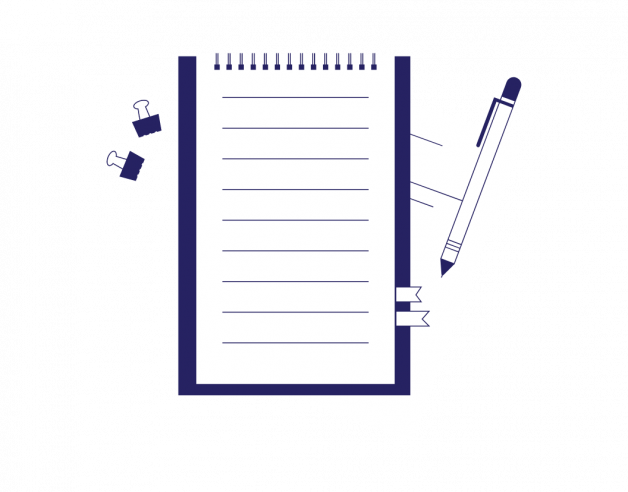
- 4-minute read
- 1st June 2023
How to Write a Court Letter (With Template)
Sending a letter to court personnel is a serious matter, so if you need to write one, ensure it makes an impact and conveys your message well. In this post, we’ll discuss the reasons you might need to write a court letter, the essential information to include, and an example of what one might look like.
What Is a Court Letter?
A court letter, also known as a legal letter or court correspondence, refers to a written document used in legal proceedings. It’s a type of formal communication addressed to court personnel, such as a judge, attorney, or another party involved in a legal case.
Court letters can serve many purposes, including requesting information, providing evidence, or asking for consideration from the court. For example, you could write a court letter on behalf of a defendant to highlight their positive qualities prior to sentencing. Or you could write a letter to a judge to provide a positive context for a family member involved in a child custody dispute.
Due to their serious nature, court letters should always be written using a professional tone of voice. It’s important to convey your ideas clearly and concisely, and while the recipient won’t be expecting perfection, do your best to ensure your letter is free of grammatical errors, spelling mistakes, and typos.
What to Include in a Court Letter
Whatever the reason for your letter, include the following information:
● Your contact information (name, address, telephone number, email address)
● The date
● The recipient’s name and the name of the court
● A subject line stating what the letter will address (if in email form)
● A greeting or salutation
● Body content
● A closing signature
Here’s a sample template for a court letter – it’s asking a judge to consider a specific claim, but it can be adapted to suit other purposes.
Court Letter Template
Find this useful?
Subscribe to our newsletter and get writing tips from our editors straight to your inbox.
[Your Name]
[Your Address]
[City, State ZIP Code]
[Date]
[Judge’s Name]
[Name of Court]
[Address of Court]
[City, State ZIP Code]
Dear [Judge’s Name],
I am writing to bring your attention to a claim I have against [name of defendant] regarding [briefly describe the nature of the claim]. I am writing this letter in support of my claim and to request that the court consider my case.
On [date of incident], I [briefly describe what happened]. As a result of this incident, I have suffered [describe the relevant injuries, losses, or damages]. I have attempted to resolve this matter with [name of defendant] but have been unsuccessful in coming to a resolution.
I am requesting that the court hear my case and am seeking [describe the specific relief you’re seeking, such as monetary damages or a specific action by the defendant]. I have attached the relevant documents and evidence to support my claim.
Thank you for your time and consideration of this matter.
Sincerely,
[Your Name]
Structuring Your Letter
As you can see above, the letter begins by formally stating the purpose for writing. The second and third paragraphs briefly and clearly describe the nature of the incident, its impact, and the desired outcome of the request. It ends by referring to supporting documents and evidence included with the letter.
If you’re writing on behalf of someone else, include your relationship with them (coworker, family member, etc.) and one or two examples that demonstrate their character to provide context for your claims.
If you’re unsure of the correct title to use for the salutation, look it up beforehand (on the court’s or law firm’s website). And when signing off, use a respectful closing signature, such as sincerely or respectfully, and your full, legal name (rather than a nickname).
Expert Proofreading Services
Make sure your writing always hits the mark by getting it checked by our expert editors. Send in your free proofreading sample today!